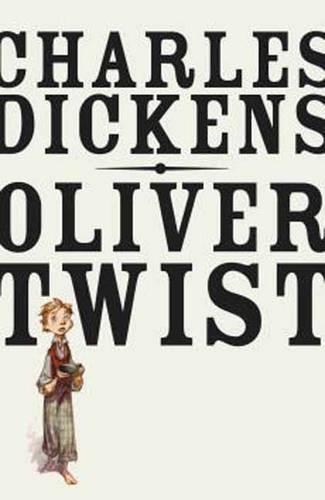
Oliver Twist
(Paperback)
Available Formats
Paperback
Published: 10th June 2025
Paperback, Illustrated edition
Published: 1st March 2020
Paperback
Published: 6th March 2008
Hardback
Published: 29th January 2018
Hardback
Published: 31st May 2018
Hardback
Published: 1st February 2014
Paperback
Published: 23rd May 2012
Hardback
Published: 13th September 2016
Hardback
Published: 1st August 2011
Paperback
Published: 16th February 2021
Paperback
Published: 1st November 2008
Paperback
Published: 18th September 2014
Paperback
Published: 15th May 2005
Paperback
Published: 23rd February 2004
Paperback
Published: 5th May 1992
Paperback
Published: 3rd September 2007
Paperback
Published: 1st August 2013
Paperback, Enriched Classic
Published: 13th September 2007
Hardback
Published: 20th November 2012
Paperback
Published: 23rd July 2018
Publishing Details
Oliver Twist
By (Author) Charles Dickens
Random House USA Inc
Vintage Books
1st March 2012
United States
Classifications
General
Fiction
Classic fiction: literary and general
823.8
Physical Properties
Paperback
432
Width 134mm, Height 201mm, Spine 25mm
363g
Description
This darkest and most colorfully grotesque of Charles Dickens's novels swirls around one of his most beloved and unsullied heroes, the orphan Oliver Twist. One of the most swiftly moving and unified of Dickens's great novels, Oliver Twist is also famous for its re-creation-through the splendidly realized figures of Fagin, Nancy, the Artful Dodger, and the evil Bill Sikes-of the vast nineteenth-century London underworld of pickpockets, thieves, prostitutes, and abandoned children. Victorian critics took Dickens to task for rendering this world in such a compelling, believable way, but readers over the last century and a half have delivered an alternative judgment by making this story of the orphaned Oliver one of its author's most loved works.
Reviews
"The power of [Dickens] is so amazing, that the reader at once becomes his captive, and must follow him whithersoever he leads." --William Makepeace Thackeray
Author Bio
Charles Dickens (1812-1870) was born in Portsmouth, England, and spent most of his life in London. When he was twelve, his father was sent to debtor's prison and he was forced to work in a boot polish factory, an experience that marked him for life. He became a passionate advocate of social reform and the most popular writer of the Victorian era.
